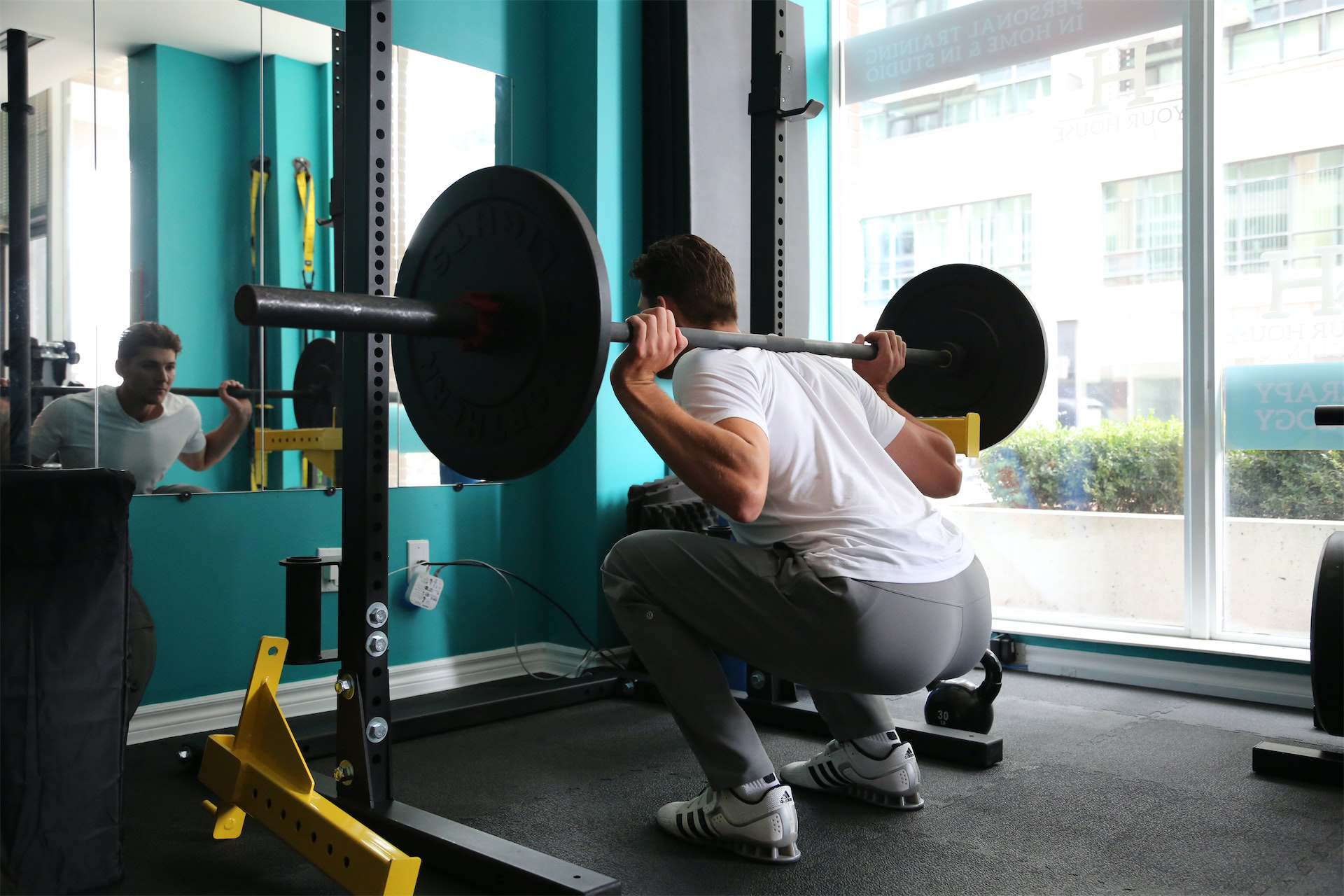After buying a gym membership five months ago, I can honestly say I’ve gone to exercise at said gym twice. Why do so many of us fall into this pattern? For me, it’s because I feel embarrassed when I don’t know how to use the machines properly, and I also don’t know how to prepare my body for the gym or how to recover after my workout. On top of that, I am constantly worried that I’m depriving my muscles of proteins that I would otherwise receive from animal products if I weren’t eating a plant-based diet.
To answer some of my questions about gym routines for vegans, I spoke with Karina Inkster, a vegan personal trainer and nutrition coach. Inkster has written four books, shares her own plant-based recipes on her blog and hosts her own weekly podcast, “The No-Bullsh!t Vegan.” Here are 10 tips to help you crush it at your next gym session.
- Create habit-based goals.
Instead of suddenly declaring you will lose 15 pounds, come up with a realistic action plan for losing the weight. Focus on how many times you will (actually, no seriously) go to the gym per week, or how long your cardio sessions will be every other day. Track your food intake. Figure out which days you want to rest. Find a plan that fits your lifestyle and schedule that you know you can stick to, and eventually they will become habits.
- Track your progress.
This sounds simple enough, but according to Inkster, many people don’t track their progress while trying to reach their goals. If your goal is to lose weight, use other things than just the scale; Take your body measurements each week, pay attention to how clothing fits and take photos to track your progress. Not only will this help you more accurately gauge your weight loss (since the scale fluctuates so regularly due to muscle weighing more than fat), it will also allow you to celebrate small victories along the way.
- Don’t rely on motivation.
“If you rely on motivation to get your a** to the gym, you're setting yourself up for failure,” Inkster says. Inspiration can make you feel invincible but try to rely instead on the habits you create for yourself. This way when you’re lacking motivation, you’ll still find a way to get to the gym. According to Inkster, most successful gym-goers have trained themselves to “operate without motivation.”
- Prepare your environment.
Find an environment that works in favor of your goal. This might mean finding a work-out partner, using an app to keep track of your food intake, packing your gym bag the night before or becoming a member of a males or females-only gym. Whatever makes your path to success easier, do that. Put yourself in an environment that you thrive in.
- Get your bloodwork done.
Going to your provider’s lab isn’t time-consuming, and it can be really beneficial for anyone on a special or restrictive diet, especially if they’re an avid exerciser. Inkster says she recommends that each client goes through a blood test in order to check levels of deficiency. This way you’ll know which whole foods or vitamins you should be adding into your diet, and you can stay strong at the gym.
- Pay attention to B12.
Inkster says the only non-negotiable supplement vegan gym-goers should be taking regularly is vitamin B12 which helps keep the body’s nerve and blood cells healthy. B12 is found in animal products like eggs, meat and fish, so vegans are usually lacking in their diets. Without this essential vitamin you could experience side effects, such as lightheadedness, anemia, fatigue or numbing of limbs. According to The Vegan Society, adults eating a plant-based diet need at least 10 micrograms of B12 daily, or 2,000 micrograms weekly.
- Rethink BCAAs.
Supplement companies claim that BCAAs are crucial to a vegan gym-goers diet, but according to Inkster, they really don’t do much when it comes to improving performance or results. BCAAs only contain three of the 20 amino acids our bodies need in order to build muscle, so unless you are extremely protein deficient, these supplements that claim they can build your muscles are unnecessary.
- Rethink protein powder.
There is soo much hype around protein powder these days, and it comes in so many different forms—whey, egg, pea, soy, hemp, rice, casein—are just a few that come up when you Google protein powder. This supplement is useful but you should really only spend money on it if you’re not getting enough protein or if you’re using it as a meal replacement, according to Inkster. If you are using it in place of a meal, in the form of a smoothie for example, just make sure you’re getting all of the other nutrients you’d normally get from the meal, too. (Here’s a great recipe for a 400-calorie smoothie with protein powder.)
- Don’t stress so much about pre and post-workout meals.
“Pre and post-workout meals are not as important as most people think, assuming that your regular day-to-day diet is on point,” Inkster says. That being said, if you’re eating junk food for breakfast, lunch and dinner, you might need to adjust your before-gym or after-gym spread. If this is you, focus on getting enough protein to help repair muscle, enough carbs to help restock glycogen and enough fats to aid in muscle growth. It’s important to note, though, that Inkster says there is a difference between what someone who is vigorously strength training needs to eat for workouts and what a person regularly going to the gym does. “If you’re specifically strength training in a gym, you do want to make sure that you have some slow-digesting carbs, like oatmeal, before a long workout, along with some kind of protein,” she says.
- Find the right trainer for you.
It can take a while to find a personal trainer that you’re not only comfortable sweating profusely around, but also one who will create a plan to fit your life. When it comes to the question of “Should I work with a vegan coach?” Inkster has this to say: “It honestly should not matter what that person eats, as long as they're not pushing meat and whey protein shakes.” So, no, it doesn’t really matter if your personal trainer is also a vegan. But, Inkster says, if you're looking for a rigorous plan in which you’ll receive not just training, but nutrition coaching on top of that, then it makes sense to find someone who’s vegan.
Photo by Sergio Pedemonte, Unsplash.
Interview with Karina Inkster.
















